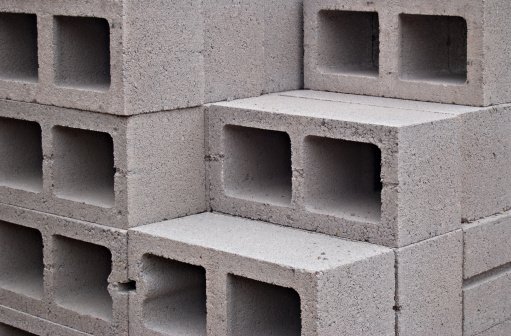Introduction.
Starting a concrete block business in Nigeria can be a great way to earn a steady income and build a thriving enterprise.
Nigeria’s construction industry is growing fast, with more homes, schools, offices, and other buildings going up every day.
Concrete blocks are at the heart of this construction boom, making them an essential building material with a constant demand.
If you’re considering stepping into this business, you’re likely wondering how to get started, the costs involved, and the challenges you might face.
This article will walk you through everything you need to know about starting a concrete block business in Nigeria, from planning to running your operation successfully. Let’s dive into it.
Why Is This Business a Good Opportunity?
Nigeria has a population of over 200 million people and is still growing. As more people need homes, and businesses require infrastructure, the demand for affordable building materials like concrete blocks continues to rise. Here’s why this business is worth considering:
- High Demand: Concrete blocks are used in nearly every construction project. Whether it’s residential, commercial, or industrial, builders need blocks.
- Durability of Product: Concrete blocks are long-lasting and don’t spoil or go out of fashion, making them an ideal product to store and sell over time.
- Local Availability of Materials: Sand, cement, and water—the main ingredients for making concrete blocks—are widely available in Nigeria.
- Scalable Business: You can start small with basic tools and grow as your customer base expands.
How Do I Start a Concrete Block Business in Nigeria?
1. Understand the Industry
Before jumping in, take time to study how the concrete block market works. Identify the different types of blocks (e.g., hollow blocks, solid blocks, interlocking blocks) and learn which ones are most popular in your area.
Speak to local builders and contractors to understand their needs and preferences. This will give you a clear picture of your potential customers.
2. Write a Business Plan
Every successful business starts with a plan. A business plan will help you organize your ideas, estimate costs, and figure out how to make a profit. Include these key sections:
- Market Research: Who are your customers? Who are your competitors?
- Cost Analysis: What are the costs of equipment, materials, labor, and transportation?
- Revenue Projections: How much do you plan to sell, and what will be your profit margin?
3. Choose a Suitable Location
The location of your block-making business matters a lot. Look for a space that has:
- Enough room for production and storage.
- Good access for trucks and other vehicles.
- Proximity to raw materials like sand and cement.
You might also want to be near construction sites or areas with ongoing building projects to attract more customers.
4. Get the Necessary Equipment
The tools and machines you need will depend on your budget and the scale of your operation. Basic equipment includes:
- Block-making machine: Can be manual, semi-automated, or fully automated. Manual machines are cheaper but slower, while automated machines produce more blocks in less time.
- Concrete mixer: Speeds up the process of mixing sand, cement, and water.
- Molds: For shaping the blocks.
- Wheelbarrows, shovels, and trowels: For smaller tasks around the site.
For a small-scale business, you can start with a budget of about ₦500,000–₦1,000,000. Large-scale businesses may require ₦10 million or more for advanced machines.
5. Source Quality Raw Materials
The quality of your concrete blocks depends on the materials you use. Make sure to get:
- Cement: Buy from reputable suppliers to ensure strength.
- Sharp Sand: Clean sand is essential for strong blocks. Avoid sand with impurities.
- Water: Use clean water free from chemicals or salt.
6. Hire Skilled Workers
Producing concrete blocks requires a mix of skill and efficiency. Hire workers who are experienced in operating block machines and mixing materials. Skilled labor ensures consistent quality and reduces waste.
7. Register Your Business
To avoid legal issues, register your business with the Corporate Affairs Commission (CAC) in Nigeria. You may also need permits from local authorities, depending on your location. Having proper documentation builds trust with customers and contractors.
8. Start Production
Once everything is set, you can start making and selling your blocks. Begin by producing a few samples to test the quality and get feedback from potential customers. Adjust your production process as needed before scaling up.
9. Market Your Business
Let people know about your business. Use simple, effective marketing strategies like:
- Word of mouth: Tell local builders, contractors, and hardware shops about your blocks.
- Flyers and posters: Advertise in areas with active construction.
- Social media: Platforms like Facebook and WhatsApp can help you reach a larger audience.
Challenges You Might Face
While the concrete block business has many advantages, it’s not without challenges:
- Competition: There are likely other blockmakers in your area. Stand out by offering consistent quality and competitive prices.
- Rising Material Costs: The cost of cement and sand can fluctuate. Plan for these changes to avoid losing profit.
- Power Supply: If using automated machines, irregular electricity can slow down production. You may need a generator.
FAQs
1. How much money do I need to start this business?
You can start small with around ₦500,000–₦1,000,000. For a large-scale operation, the budget can go up to ₦10 million or more.
2. Do I need to register my business?
Yes, registering with the CAC and getting any necessary permits will make your business legitimate and build customer trust.
3. What type of blocks should I produce?
This depends on demand in your area. Hollow blocks are commonly used for walls, while solid blocks are preferred for foundations.
4. How can I ensure good quality?
Use high-quality materials, the right mix of sand and cement, and skilled workers to produce strong, durable blocks.
Conclusion
Starting a concrete block business in Nigeria is a rewarding venture if done right. With growing demand for construction materials and the right approach, you can create a profitable business that supports your community’s building needs.
What steps will you take today to turn this idea into reality?





GIPHY App Key not set. Please check settings